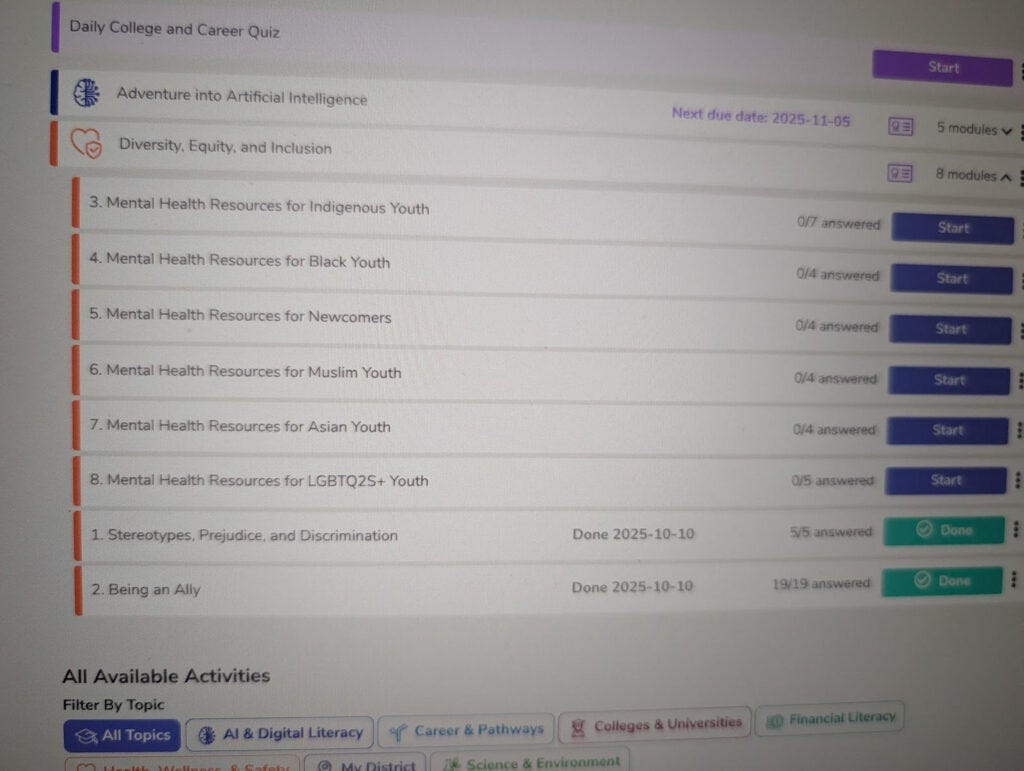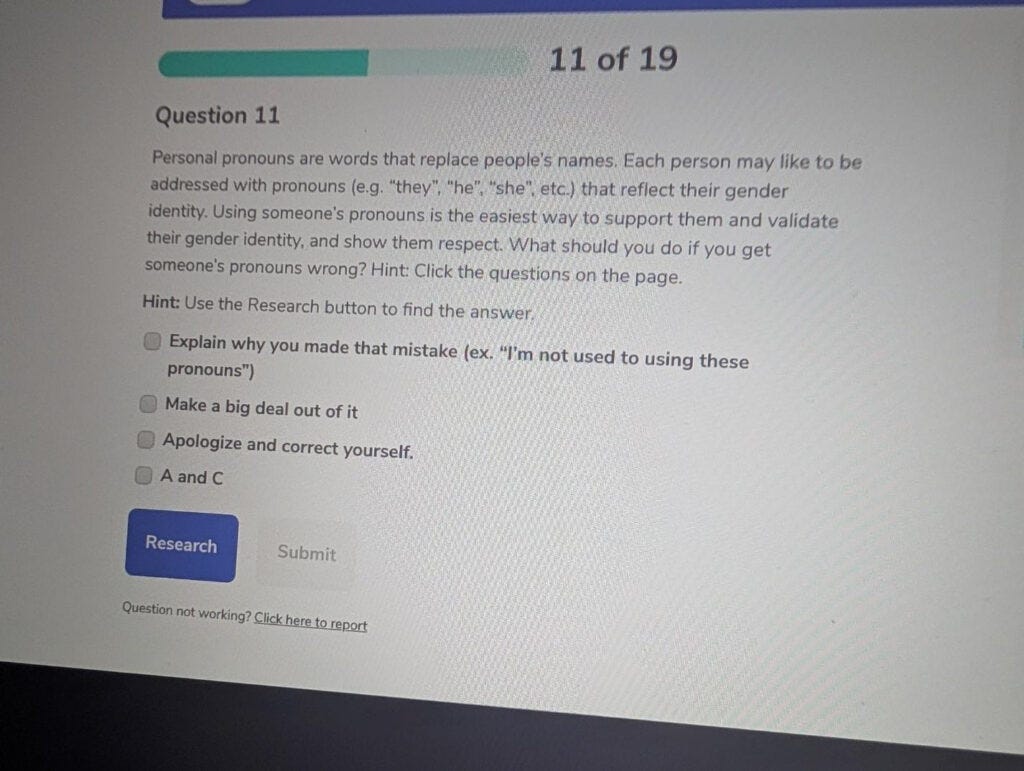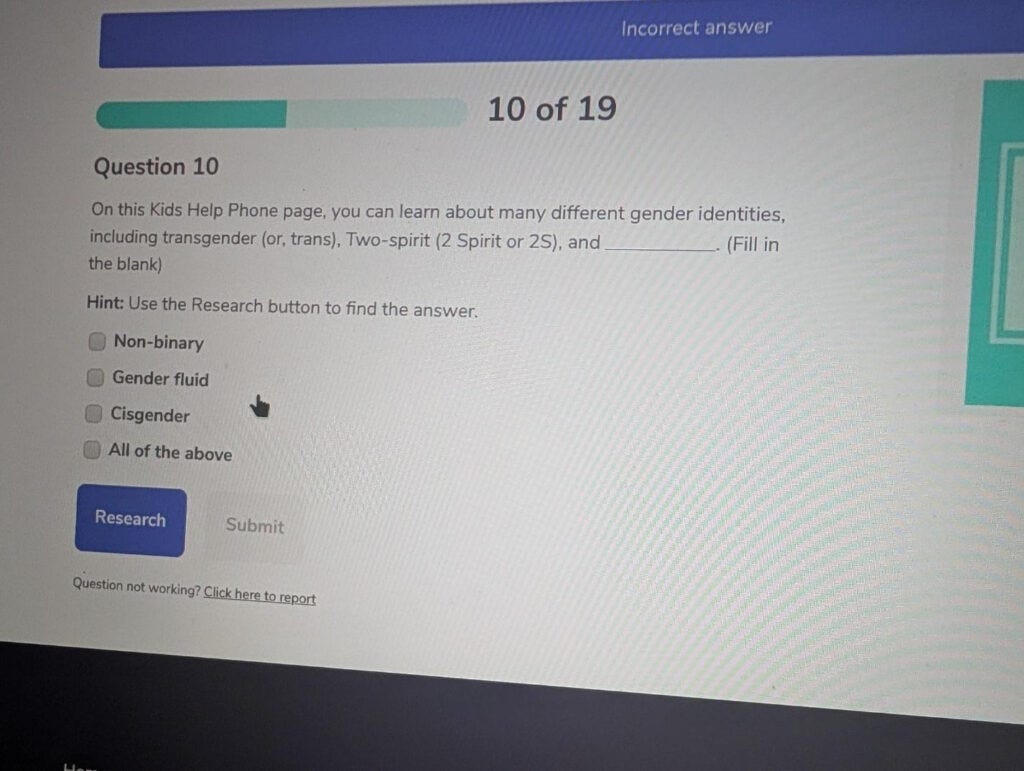Mandatory DEI, gender ideology training in Abbotsford BC Grade 9 class
A father in Abbotsford was stunned to learn that his son’s Grade 9 careers course included mandatory lessons on gender identity, systemic racism, and white privilege.
A father in Abbotsford was stunned to learn that his son’s Grade 9 careers course included mandatory lessons on gender identity, systemic racism, and white privilege.
Pierre Barns received an email from his son’s teacher at Rick Hansen Secondary School last week warning that his son was failing the class, a required credit for graduation. When Barns sat down to help him catch up, he discovered his son hadn’t completed Diversity, Equity, and Inclusion training.
Students were required to complete modules titled “Diversity, Equity, and Inclusion,” which included quizzes referencing pages from Kids Help Phone. Questions tested knowledge of gender expression, pronouns, and definitions of systemic racism. Correct answers reflected a particular ideological stance.
One question asked students to confirm that “everyone has a gender expression.” Another instructed them on how to respond if they “get someone’s pronouns wrong.” Each quiz was auto-marked and counted toward the student’s grade in the course.
According to the B.C. curriculum, the course is meant to help students explore personal strengths, build employability skills, and plan for future education or work. It does not include content on gender theory, allyship, or systemic racism. Assessments are meant to focus on self-reflection and goal-setting, not ideology or politics.
The DEI training was delivered through a bespoke education resources website called ChatterHigh. Modules drew from Kids Help Phone resources promoting allyship, activism, and “equity as equality of outcomes.”
The same pages describe systemic racism as rooted in “the domination of white people upon racialized groups” and encourage students to “recognize their privileges” and challenge peers and family who hold different beliefs.
When asked about the lessons, Barns said he was never informed that his child would be graded on DEI materials. “The email said it was mandatory for graduation,” he said. “I expected a career assignment, not social activism.”
Public opinion surveys show most Canadians do not fall at either ideological extreme. A 2024 Research Co. survey found that 44 per cent of Canadians place themselves at or near the political centre, with only three percent describing themselves as “extreme left” and four per cent as “extreme right.” In British Columbia, political attitudes are similarly mixed, with large numbers of voters identifying as moderate or centrist.
Public opinion research shows that most Canadians identify near the political centre. Angus Reid polling found that 47 per cent of Canadians who place themselves in the middle of the political spectrum feel that no political movement represents their views, and 36 per cent described themselves as “political orphans” who see public debate as increasingly extreme on both sides.
A Leger survey found that while about half of Canadians support teaching topics like sexual orientation and gender identity in schools, 63 per cent believe parents should be notified if a child changes pronouns, and 51 per cent want advance access to lesson materials on sensitive topics.
A Fraser Institute–Leger poll in B.C. parents found even stronger views on classroom neutrality. Eighty-five per cent said teachers should focus on facts rather than opinions, and 77 per cent believed parents should have the right to remove their children from controversial lessons without penalty.
While the B.C. Ministry of Education promotes safe and inclusive schools, it leaves specific lesson design to individual districts.
True North contacted Rick Hansen Secondary and the Abbotsford School District to comment,asking whether parents were notified and which curriculum outcomes the lessons fulfilled. Neither the school nor the district responded.







Wow this is truly concerning! It is time to stop this brain washing of children and demand the schools get back to basics like focusing on reading writing and math.
These individuals need to be fired!!
BC is a militant SOGI state…this shouldn’t be shocking in a public school.